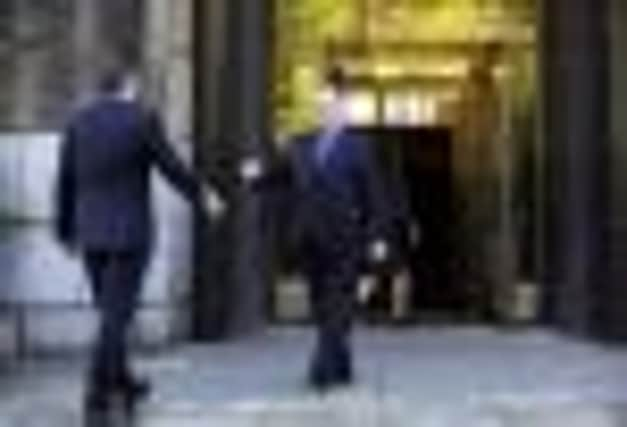Leaders: Unionist and Nationalist owe the voters clarity | Car smoking ban a step too far


Although it clearly took a degree of self-restraint from the First Minister, he managed to stick to the instructions given to him by his aides as he struck a conciliatory note over the deal he signed with the Prime Minister which will lead Scotland to the most important decision the nation has had to take in more than 300 years.
As we noted here yesterday, it was imperative the referendum was clear, fair and unambiguous. Looking at the detail of the agreement yesterday, it appears that both sides have recognised this necessity and have acted to ensure there will be a proper test of Scottish public opinion on whether the nation remains part of the Union. That being the case, and with at least the main details of the process mercifully out of the way, we can now look forward to the campaign and the cases which will be put by each side of this fundamental constitutional divide. What should we expect from Unionist and Nationalist? And what can we expect?
Advertisement
Hide AdAdvertisement
Hide AdWhat we, as the electorate, have a right to expect is some facts and information, a basis on which rational, reasonably well-informed people can make such a profound decision. It is a point which applies to both sides of the argument.
As we have noted before, the Nationalists often rely on the assertion of something being the fact, rather than the fact itself. In some areas it is true that absolutely clarity is difficult, but on issues ranging from whether Scotland will use the pound sterling, to details of membership of the EU, to winning defence contracts from what would become the remainder of the UK, we need far more facts and far less assertion.
Similarly on the Unionist side, there is a need for clarity rather than comfortable assumption about the Union and the relationship between what is left of it and an independent Scotland. The issues mirror those which face the Nationalists.
Can the UK Government speak for a successor state in claiming the Bank of England would not work with Scotland? Would there be no defence contracts for Scottish shipyards? Can they be definitive in terms of Scotland having difficulty joining the EU?
Both Mr Salmond and Mr Cameron yesterday promised to respect the will of the Scottish people but they, and their allies, should do more than just pledge to respect the voters – they should demonstrate they are doing so by treating them the electorate like adults. They must present the facts, face up to inconvenient truths, acknowledge problems. Whether they will or not remains to be seen but after an historic day like yesterday, we live in hope.
Car smoking ban a step too far
Smoking kills. On that hard-hitting fact which became a campaign slogan there is little dispute, though it is always possible to find some on the extremes of the argument who would deny the carcinogenic effects of tobacco.
However, for most in society, smokers and non-smokers alike, that debate is over. What has not ended is the debate over how far society, collectively, should go further to discourage smoking.
In Scotland, the Scottish Parliament led the UK in banning smoking in public places, a move which pubs claim has been responsible for a reported decline in trade, though supermarket discount pricing was surely a contributory factor.
Advertisement
Hide AdAdvertisement
Hide AdNow there are calls for legislators to ban smoking in cars after research found a concentration of pollutants in a vehicle with a smoker present were three times higher than the World Health Organisation’s indoor air quality safe level.
Researchers from Aberdeen University warn exposure at the levels they found is harmful to respiratory health and concluded there was a clear need for legislation to prohibit smoking in cars where children were present.
Their evidence seems clear and their demand justifiable. Yet there is a wider issue to consider. If politicians ban smoking in cars, where next: in the home? For that kind of intrusion is the next logical step. And then how is that policed?
Of course, parents should not smoke if it endangers children but equally we all have the right to make certain choices free of state interference. Banning smoking in cars is an authoritarian step too far.